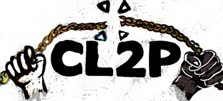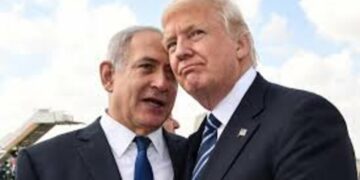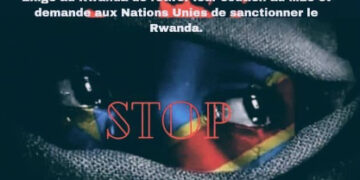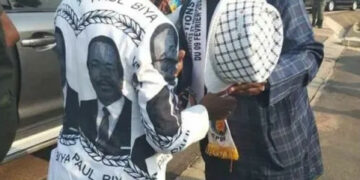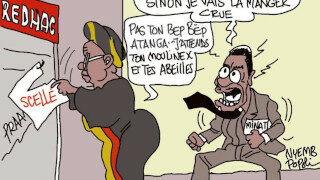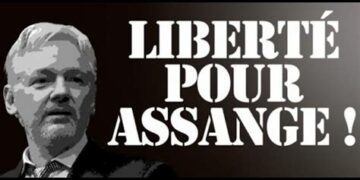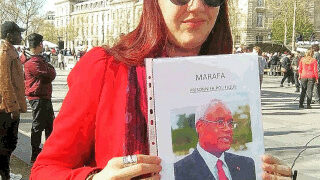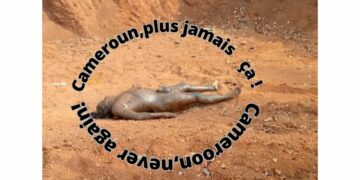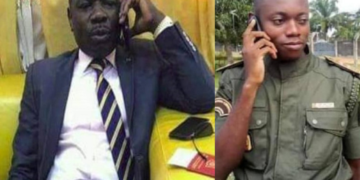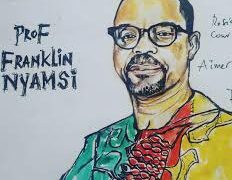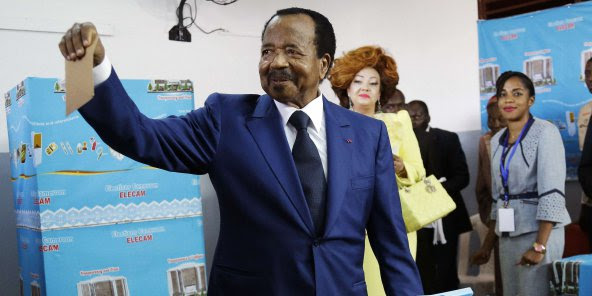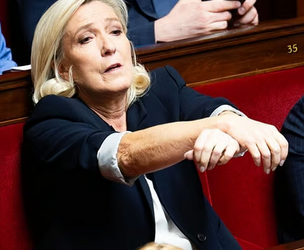On 22 October Cameroonian authorities declared incumbent Paul Biya winner of the presidential election with a score of 71 per cent. What happened?
The presidential election was held amid the worst insecurity since 1992. In the Far North, Boko Haram continues small scale attacks, and the fallout from nearly five years of conflict continues with 240,000 currently displaced. Violence by armed groups from the Central African Republic is affecting the East. In the Anglophone Northwest and Southwest regions, a growing insurgency has seen almost daily fighting with security forces.
On the day of the vote, no major security incident was reported in Francophone areas, where about 55 per cent of registered voters cast ballots. But in Anglophone areas, armed separatists and security forces skirmished in many towns, marring the elections. Only some 5 per cent of registered voters went to the polls in the Northwest region, according to ELECAM, the official electoral body, and 16 per cent in the Southwest. The figures for the Southwest could be inflated, according to multiple sources I spoke to, including electoral officials in that region.
The vote highlights the pressing need to build trust between the population as a whole and the state.
Few people I met were surprised that the Constitutional Council pronounced Paul Biya the winner, although many were taken aback by his margin of victory. His full control of the state machinery and electoral apparatus, as well as the divisions among his rivals, was always likely to give him a significant share of the vote, though given all the irregularities, the actual vote tallies are hard to ascertain. Many perceive that the president’s control over the Constitutional Council, which resolves election disputes and announces results, enabled him to inflate his score way above what was needed to win, in order to demonstrate his dominance. Biya’s opponents cried foul, leading to a tense post-electoral standoff. Most international observers, including the African Union, pointed to irregularities, but did not dispute the Constitutional Council’s overall results. But Archbishop Samuel Kleda of Douala, President of the National Episcopal Conference, questioned the Constitutional Council’s decision, arguing that Biya is unlikely to have won in the two Anglophone regions and the Far North.
What is the election’s overall importance?
The vote’s significance is fourfold:
First, it highlights the pressing need to build trust between the population as a whole and the state. President Biya must work urgently to restore confidence in institutions, including those in charge of elections. A good start would be to name more politically neutral figures to the electoral body ELECAM and allow them to elect their own head, who is currently named, as are all the members, by the president. Even these seemingly self-evident measures may be hard to swallow for those in Yaoundé who want to keep tight control over future elections – international pressure is therefore an important part of the equation.
Secondly, the vote further revealed the deep distrust in the state in Anglophone areas. The low participation rate owes partly to violence and the separatists’ influence. But it also reflects many Anglophones’ anger at the government and the fact that the vote went ahead at all, given the crisis in those areas.
Thirdly, beyond tensions related to the Anglophone crisis, there are clear signs of growing animosity among Cameroon’s ethnic groups, as detailed in our most recent report. As Biya enters what are likely to be his final years of rule (he is now 85), all sides could be sorely tempted to stoke this antagonism as they seek to mobilise their respective ethnic bases to make a bid for power. To counter this risk, the government should ensure that its own supporters, who are responsible for much of this antagonism, desist, and the president should speak out against efforts to widen ethnic divides, especially on social media. A national dialogue, which Crisis Group has called for in the past, could also address communal tensions.
Finally, the electoral campaign, particularly in its closing stages, captured the attention of a surprising number of people. A number of new candidates, especially Maurice Kamto – who ended up being Biya’s leading opponent – and Cabral Libii, attracted tens of thousands at their final campaign rallies. Millions at home were glued to their televisions watching the Constitutional Court’s hearings on claims of rigging, and many seem less afraid to criticise the government. This renewed energy in what has long been a moribund political landscape augurs well for the future, but if hopes for change are frustrated in the medium term, anger could grow.
What are the post-electoral tensions about?
On 8 October – the day after the vote – Kamto, who benefited from the withdrawal of another important candidate, Akere Muna, with whom he subsequently allied, claimed that he had won, based on his own party’s data, plunging the country into a post-electoral crisis. Two other opposition candidates, Libii and Joshua Osih, also produced what they allege is evidence of widespread fraud, especially in the Far North, South, East, Northwest and Southwest regions. Some of this evidence, partly based on official reports of the national commission for the final counting of votes, appears credible: at a Yaoundé polling station, a senior member of Kamto’s team found that someone else had already voted in his place; in some areas of the South region the number of voters exceeded the number of people registered, and 100 per cent of them voted for Biya. Elsewhere, ruling party supporters expelled opposition party representatives from polling stations and even assaulted some of them. The Constitutional Council also made several tallying mistakes. For example, Kamto’s total official vote in the Centre region was less than the number he received in a single division of that region. The council used this count in its final declaration of results without acknowledging the error.
Given the likely magnitude of the election irregularities, it is almost impossible to determine what percentage of the vote each candidate really won.
Per Cameroonian law, the Constitutional Council examined these complaints before announcing the official results. On 22 October, the Council dismissed the complaints and proclaimed Biya victorious with 71 per cent, with 14 per cent for Kamto, 6 per cent for Libii and 3 per cent for Osih.
The same day, Kamto repeated his claims that he had won, rejecting the Constitutional Council’s conclusions and releasing his own detailed figures. On 25 October and 3 November he called for a “national resistance program”, including protest marches, demonstrations and prayers in Yaoundé, the capital, and Douala, the country’s largest city and economic hub. He asked Cameroonians in the diaspora to occupy Cameroonian embassies, sign petitions and find other ways to back his claim. Since then, thousands of Cameroonians have demonstrated in Paris and several Western capitals to denounce what they call an “electoral holdup”.
Given the likely magnitude of the election irregularities, it is almost impossible to determine what percentage of the vote each candidate really won. But Biya’s 71 per cent score seems significantly above a credible figure.
Are there risks of further violence?
Following Biya’s swearing-in on 6 November, he will hope for a swift return to normalcy. Most of Cameroon’s international partners, such as France, the UK, the European Union and the U.S., have recognised the result. But Kamto’s national resistance program could encourage more street demonstrations and prolong the post-election crisis.
Many Cameroonians accept that Biya probably won, but they remain angry. Few believe that he received 71 per cent of the vote, and indeed results posted on social media point to a much tighter race. Nor do many see the Constitutional Council as impartial, since Biya appointed all eleven members, the majority of whom are also former members of the ruling party. The next few weeks will indicate which direction the post-electoral crisis will take. The climate in Douala and Yaoundé is tense. The government has banned several opposition and civil society press conferences and marches, reinforced its troop deployments to deter and disrupt protests, restricted access to Facebook and arrested several people planning demonstrations. On 27 and 28 October, and on 2 November, security forces briefly arrested more than 100 demonstrators from Kamto’s party in Douala, Yaounde and Bafoussam, and attacked the party’s Douala headquarters.
What about the Anglophone regions?
Few among the Anglophone minority cared about the election. Neither the government nor the opposition campaigned there. The very low participation rate also implies that the separatists, who called for a boycott, have considerable power on the ground. But many Anglophones think the vote should not have been held amid violence and displacement. They saw little in any of the candidates’ platforms that pointed to a solution to their problems. The low turnout therefore also reflects their rejection of the process and widespread dissatisfaction with the state.
That said, Kamto has some support among Anglophones. The separatist interim government congratulated him upon “his victory” and urged him to defend it, no doubt also hoping to score points against the government in Yaounde.
The Anglophone conflict is gradually turning into a civil war. Only dialogue between armed separatists and the government can stop the escalation. Some religious leaders are trying to organise an Anglophone general conference, which would identify Anglophone interlocutors able to then negotiate with the government, and would thus be a welcome pre-mediation initiative. Unfortunately, the government is principally relying on a military campaign to crush the rebels, while separatists are calling for internationally mediated negotiations on neutral ground.
Both of these positions are counterproductive. If the government ultimately defeats the separatists, it would only be after a long and costly war, which would likely further fuel Anglophone grievances and thus lay the groundwork for more violence down the line. Already, the fighting has killed between 450 to 500 civilians, 185 members of the security forces and hundreds of armed separatists. According to the UN’s Office for the Coordinator of Humanitarian Affairs and High Commissioner for Refugees, 437,000 persons from the Anglophone regions are internally displaced and 26,000 are refugees in Nigeria. The separatists, for their part, stand little chance of winning a military victory. Their actions are setting up a long guerrilla war that is already causing massive harm to the civilian population they claim to represent and will in the long run erode any sympathy they still enjoy.
Crisis Group has been calling for over a year for the government to talk to representatives of the Anglophone minority. The Anglophone general conference scheduled for 21-22 November is a good opportunity for the government to signal its willingness to engage. It should allow the conference to happen, and release detainees and allow them and the diaspora to participate, as a prelude to talks.
International actors seem unable or unwilling to push Biya to address the deep-seated problems related to his rule.
So where does the country go from here?
President Biya remains in a relatively strong position. His government retains control of the administration and security forces; only in the Anglophone areas is its authority on the ground in question. But the government’s sense of security, even after an election that damaged its image at home and abroad, has strengthened its belief that it need not reform or engage in dialogue with the population.
Nevertheless, things are shifting. Both opposition politicians and the broader public seem to have found their voices to challenge the government. This dissent could come to fruition in the October 2019 parliamentarian and municipal elections, as many young people who were previously apathetic toward elections now seem determined to register to vote. In Yaoundé and Douala, I met many young people who regretted that they had not done so, thinking it was impossible to change the game. After seeing the combative opposition campaign, the alliance between two big opposition candidates (Kamto and Muna) and the Constitutional Council hearings, many realise they may have missed a real opportunity.
But if this energy is not channelled constructively, it could turn to frustration. During research before the election, I learned of small groups in Francophone areas intent on using violence against the state. While they remain small, two of these groups have links to Anglophone separatists. Tighter security measures on their own will not stem this phenomenon, which has roots in popular dissatisfaction with the government. Even if security forces can crack down on existing groups, others could emerge.
Some Western governments are rightly urging the government to engage in dialogue with the Anglophones – in particular, now they need to help persuade it to allow the Anglophone conference to go ahead. But international actors seem unable or unwilling to push Biya to address the deep-seated problems related to his rule that could lead to conflict in Francophone areas as well. Most foreign powers appear to have calculated that, with the president likely to remain in power, they are better off not rocking the boat by being overly critical either of the election or, more broadly, of his closure of political space and intolerance of the opposition.
Overall, of course, the future of Cameroon lies primarily with its citizens, in particular whether Biya’s opponents and society more broadly can mobilise and what form that mobilisation takes. In that sense, though the election overall was divisive, worrying signs abound, particularly in Anglophone areas, and the coming years are likely to be fraught, there were signs of optimism.
The stability of Cameroon rests on these unpredictable factors. The future is daunting but far from hopeless.
